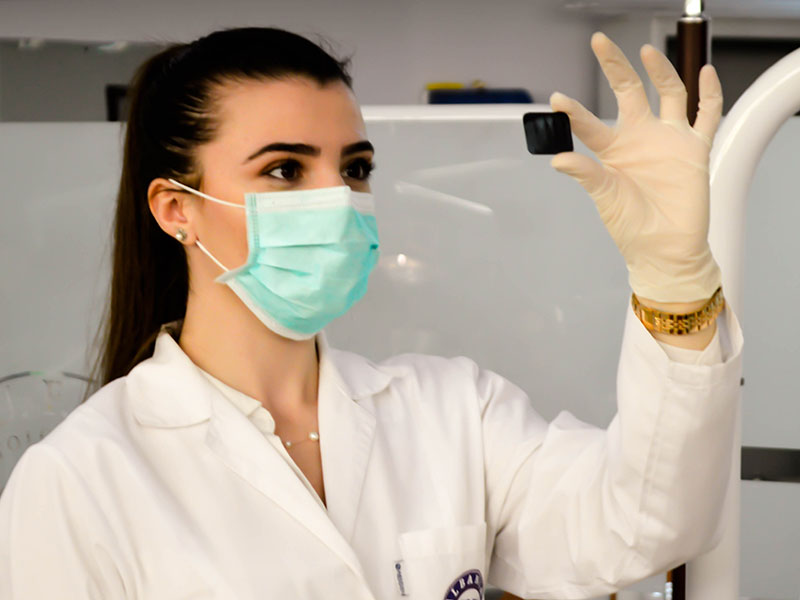Healthcare Experts
Two-fold opportunity for your healthcare professionalsWe place doctors and nurses from Eastern Europe and Germany

Theoretically, the healthcare system in Germany is one of the best in the world. But there is a shortage of personnel, which is why theory is increasingly failing in practice. It is already clear that the need for medical personnel will continue to increase in the coming years – while at the same time the need for care among the population will grow. The forecasts for the next decades paint a staggering picture: we are imperatively dependent on well-trained doctors, medical professionals and nursing staff from abroad. Otherwise, our healthcare system will soon reach its limits on a massive scale.

The German health system is indisposed: recruiting nursing staff from Eastern Europe is the solution.
Many care institutions are already understaffed. The pressure on staff is high. Nursing jobs are becoming increasingly unattractive and not least because of this. This in turn exacerbates the shortage. All forecasts predict that this trend will increase significantly in the coming years. This is problematic in several respects, as without qualified nursing staff.
Because without qualified nurses:
Care workers are continuously overworked.
People in need of care are only inadequately cared for.
Our health system cannot survive.
In short, if we do not find new ways, our healthcare system is in danger of collapsing in the foreseeable future. Since the Skilled Worker Immigration Act came into force on 1 March 2020, the path to Germany has also been opened for well-trained care professionals from Eastern Europe. They can now work in Germany if they come from a third country.
Nurses and medical professionals who are urgently needed in Germany and whom we place:
- nurses
- surgical assistants
- geriatric nurses
- nursing specialists
- assistant doctors
- specialists
- senior physicians (senior doctors)
If you have successfully completed one of these vocational trainings, you stand a good chance of obtaining an employment permit in Germany.
Find Eastern European nursing and medical professionals – rely on Talentgain!
We bring both to the table: decades of experience in personnel services in the DACH region and personal proximity to the Eastern European labour market.
What does this mean? We know the culture, customs, the legal situation and work with the most competent Eastern European partner agencies. This gives us access to a pool of healthcare specialists that is significantly larger than that of other agencies.
We at Talentgain are the experts for healthcare professionals from Eastern Europe –
contact us!
Here you are the answers to the most frequently asked questions:
Which professional training should a healthcare expert have to be able to work in Germany?
Those who have successfully completed training in the healthcare sector in their country of origin have already overcome the first hurdle. The training standards in Eastern Europe are high. Nevertheless, there are differences in content. To ensure that the requirements of the German health system are met, the training is checked by a competent authority. The applicant must make up for any missing training content. This is also possible in Germany under the new Skilled Worker Immigration Act.
How does the recognition procedure for doctors and nurses from abroad work?
General: All professions in the health sector in Germany belong to the so-called ‘regulated professions’. This means that if you come from Eastern Europe as a nurse, doctor or geriatric nurse and want to work in Germany, it is mandatory that you have your successfully completed vocational training or studies recognised beforehand. The procedure is always carried out and guided by a German authority.
EU country: Those who come from an EU country can take up the job directly if the training is recognised as equivalent. If the competent authority finds substantial differences to the training in Germany, it determines a so-called compensatory measure to remedy the differences.
Non-EU country: The same conditions apply as for applicants from the EU. However, recognition must be applied for before entering Germany. Exception is applied to the applicants already living in Germany. If the training is not recognised as equivalent, there is a possibility of acquiring the missing qualification in Germany by applying for a separate residence title.
What is a Blue Card and who receives it?
The Blue Card in Europe is almost the same as the Green Card in the USA. Since 2002, university graduates from third countries have been able to apply for such a special residence and work permit in Germany and any other EU country. In addition to having completed their studies, applicants must have a job, earning at least € 55,200 gross per year. For so-called shortage occupations, such as doctors, engineers and IT specialists, the lower limit for the annual salary is lower – they only have to prove annual earnings of at least € 43,056. In this case, however, a comparability check is first carried out by the Federal Employment Agency. The working conditions, such as working hours and salary, are checked. The Federal Employment Agency must also give its approval for the Blue Card to be issued. Whether there is a shortage of labour or not, the Blue Card offers further advantages. Permanently employed academics, for example, can apply for a residency permit after 33 months, and after 21 months, if they can prove they have the necessary German language skills.
24-HOUR CARE
The model in which one caregiver looks after one person in need of care is becoming more and more popular in Germany – both among those affected and their relatives. The idea that someone is almost always there for the person in need of care gives everyone a lot of security. However, the term “24-hour care” is misleading. The term applies as the carer lives in the household of the person in need of care and is therefore theoretically available at all times. Of course, under German law, foreign 24-hour care workers work only the statutory eight hours a day. In order to meet the large demand for caregivers for this form of care, Germany is in urgent need of care workers from Eastern Europe.


